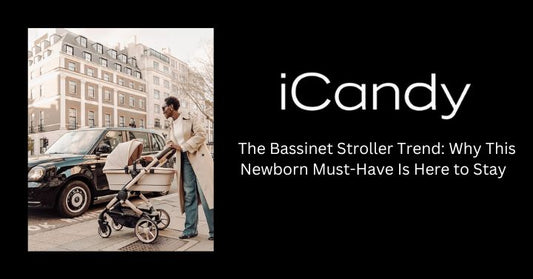News

Double the Love, Double the Comfort: Why Parent...
Welcoming twins into your life is a beautiful and exciting journey – but let’s be honest, it comes with double the planning, double the gear, and double the decisions. One...
Double the Love, Double the Comfort: Why Parent...
Welcoming twins into your life is a beautiful and exciting journey – but let’s be honest, it comes with double the planning, double the gear, and double the decisions. One...

Best Luxury Strollers 2025: iCandy vs Uppababy ...
In the fast-growing high-end stroller market, parents are looking beyond aesthetics — they want quality, versatility, and long-term value. With premium brands like Uppababy and Nuna dominating in the U.S., we’re...
Best Luxury Strollers 2025: iCandy vs Uppababy ...
In the fast-growing high-end stroller market, parents are looking beyond aesthetics — they want quality, versatility, and long-term value. With premium brands like Uppababy and Nuna dominating in the U.S., we’re...

Why iCandy Is the Best Luxury Stroller for Your...
Loved by Celebrities, Royalty, and Stylish Moms Around the World When it comes to your baby, you want the absolute best. The safest ride. The smoothest stroll. The kind of...
Why iCandy Is the Best Luxury Stroller for Your...
Loved by Celebrities, Royalty, and Stylish Moms Around the World When it comes to your baby, you want the absolute best. The safest ride. The smoothest stroll. The kind of...

Brilliantly British Baby Names We Love
From timeless traditions to trendsetting favourites, here’s your ultimate guide to baby names with a British twist. At iCandy, we’re proud of our London roots. Just like our strollers are...
Brilliantly British Baby Names We Love
From timeless traditions to trendsetting favourites, here’s your ultimate guide to baby names with a British twist. At iCandy, we’re proud of our London roots. Just like our strollers are...

The Bassinet Stroller Trend: Why This Newborn M...
Move over, car seats and reclined strollers — the bassinet stroller trend has officially arrived in the U.S., and it's not just a fleeting fashion moment. It’s a full-on movement,...
The Bassinet Stroller Trend: Why This Newborn M...
Move over, car seats and reclined strollers — the bassinet stroller trend has officially arrived in the U.S., and it's not just a fleeting fashion moment. It’s a full-on movement,...

🔥 Best Luxury Strollers of 2025: iCandy Peach 7...
Parenthood, but make it luxury. From the ultra-chic iCandy Peach 7 — the stroller of choice for celebs like Michelle Keegan — to sleek designer picks like the Nuna MIXX...
🔥 Best Luxury Strollers of 2025: iCandy Peach 7...
Parenthood, but make it luxury. From the ultra-chic iCandy Peach 7 — the stroller of choice for celebs like Michelle Keegan — to sleek designer picks like the Nuna MIXX...
